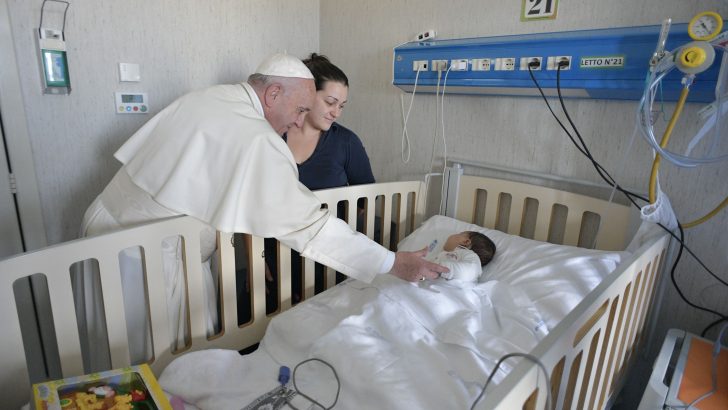Cathal Barry takes a look at who receives and who administers the Sacrament of the Sick
The Church teaches that Anointing of the Sick “is not a sacrament for those only who are at the point of death”.
“Hence, as soon as anyone of the faithful begins to be in danger of death from sickness or old age, the fitting time for him to receive this sacrament has certainly already arrived, the Constitution on the Sacred Liturgy, Sacrosanctum Concilium, states.
If a sick person who received this anointing recovers their health, the Church teaches that they can, in the case of another grave illness, receive this sacrament again.
“If during the same illness the person’s condition becomes more serious, the sacrament may be repeated,” the Catechism of the Catholic Church states.
“It is fitting to receive the Anointing of the Sick just prior to a serious operation. The same holds for the elderly whose frailty becomes more pronounced,” the key teaching document adds.
Only priests, according to Church teaching, are ministers of the Anointing of the Sick.
The Catechism states that it is the “duty” of pastors to instruct the faithful on the benefits of this sacrament.
“The faithful should encourage the sick to call for a priest to receive this sacrament. The sick should prepare themselves to receive it with good dispositions, assisted by their pastor and the whole ecclesial community, which is invited to surround the sick in a special way through their prayers and fraternal attention,” it says.
Like all the sacraments, the Church teaches that the Anointing of the Sick is a “liturgical and communal” celebration, whether it takes place in the family home, a hospital or church, for a single sick person or a whole group of sick persons.
“It is very fitting to celebrate it within the Eucharist,” the Catechism notes.
Church teaching recommends that the celebration of the sacrament can be preceded by the Sacrament of Penance and followed by the Sacrament of the Eucharist, if circumstances suggest it.
Word and sacrament, according to the Catechism, form an indivisible whole.
“The Liturgy of the Word, preceded by an act of repentance, opens the celebration. The words of Christ, the witness of the apostles, awaken the faith of the sick person and of the community to ask the Lord for the strength of his Spirit.”
The celebration of the sacrament includes the following principal elements: the priests of the Church – in silence – lay hands on the sick; they pray over them in the faith of the Church – this is the epiclesis proper to this sacrament; they then anoint them with oil blessed, if possible, by the bishop.
“These liturgical actions indicate what grace this sacrament confers upon the sick,” the Catechism states.


 Cathal Barry
Cathal Barry